

JANUARY 2025

4 Major New Oil & Gas Waste Management Rules Adopted 6 Natural Gas Supply Remained Strong During January Arctic Blasts
8 Commissioners’ Corner RRC Open Meeting February 19, 2025




4 Major New Oil & Gas Waste Management Rules Adopted 6 Natural Gas Supply Remained Strong During January Arctic Blasts
8 Commissioners’ Corner RRC Open Meeting February 19, 2025

The RRC’s record of safeguarding the environment for more than 100 years has included agency rules designed to protect groundwater across Texas.
Earlier this month, RRC experts met with local officials who are heavily involved in groundwater oversight to provide important updates on our work.
Chief Geologist Leslie Savage and Jared Ware, both with RRC’s Oil and Gas Division, spoke at the Texas Alliance of Groundwater Districts (TAGD) annual winter meeting in Pflugerville. TAGD members represent 90 local groundwater conservation districts in Texas and provides information on groundwater issues and practices and promotes sound management of groundwater.
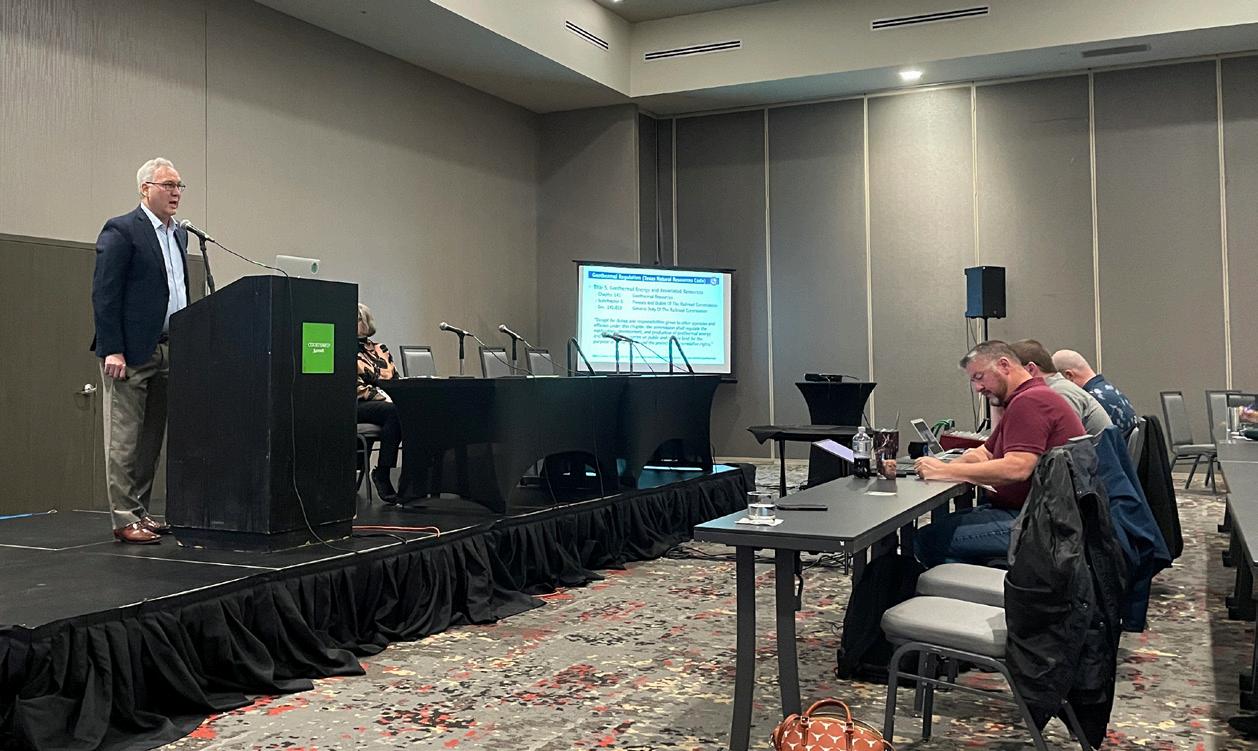
RRC staff provided an agency overview and a regulatory update on several topics related to groundwater oversight including:
• Rules regarding geothermal wells;
• New oil and gas waste management rules;
• Updates on P-13 wells and accessing information; and
• Overview of how RRC addresses seismic activity. Other state agencies in attendance included the Texas Department of Licensing and Regulation, the Texas Commission on Environmental Quality and the Texas Water Development Board.

In case you missed it while getting ready for the Christmas holidays, the Railroad Commission adopted a significant overhaul of its rules regulating oil and gas waste management facilities in Texas last month. RRC Commissioners voted to adopt the new regulations at their open meeting in mid-December.
The regulations cover waste from oil and gas operations, such as rock and other material pulled up from the ground during drilling, as well as waste from other operations for which the Legislature has given the RRC jurisdiction including geothermal, carbon sequestration and brine mining wells.
It is the first overhaul of RRC’s waste management rules in four decades.
The new rules help the RRC continue to safeguard groundwater and surface water while adapting to modern waste management practices, such as recycling produced water, and recent advancements in production methods.
The rule updates requirements on the design, construction, operation, monitoring,
and closure of waste management units, and will improve the Commission’s ability to track and collect data on oilfield waste transported throughout Texas.
The new rules also codify informal guidance that RRC experts have developed over the course of several decades to give operators and the public certainty on how regulations of waste management facilities are carried out.
The adopted rules will enhance the RRC’s oversight of waste management facilities.
The agency now has staff dedicated to environmental permit compliance – a team that reviews waste management facility reports and inspections, and follows-up on those reviews to quickly rectify any issues.
“The oil and gas industry has evolved dramatically since the 1980s. After a yearslong process, and with thoughtful and thorough deliberation from the public, agency experts, and industry stakeholders, I am proud to report the Railroad Commission has passed its first overhaul of waste management rules in 40 years,” said Chairman Christi Craddick. “I sincerely

appreciate our staff for their hard work in modernizing our agency’s rules to reflect current waste management practices and new advancements in production methods, allowing industry to continue driving economic growth while upholding our commitment to protecting public safety and the environment.”
“It’s been 40 years since these rules were last updated, and the oil and gas industry has grown and changed in ways unimaginable from back then.
Updating these regulations was a slow and deliberate process, ensuring we listened to everyone impacted – small operators, landowners, royalty owners, and waste management companies,” said Commissioner Wayne Christian. “I personally hosted meetings with small and mid-sized producers, who shared real concerns about the initial draft, especially regarding pits. We took their feedback seriously, revised the rules and created a version that protects small businesses while safeguarding our environment.
The final draft received overwhelming support from industry stakeholders,
with opposition coming almost exclusively from radical environmental groups whose ultimate goal is to shut down oil and gas in Texas. This is a win for Texas energy and for commonsense, balanced regulation.”
“By passing this measure today, the Railroad Commission and the State of Texas have taken a significant step forward to align our practices and procedures to account for the considerable changes the industry has experienced in the 40 years since this rule was last reformed,” said Commissioner Jim Wright. “Thanks to the tremendous effort and dedication of our staff here at the Railroad Commission and the input and participation of the public and stakeholder groups, we have been able to modernize these rules in a way which aligns with the Railroad Commission’s mission, and which will serve our state and citizens well.”
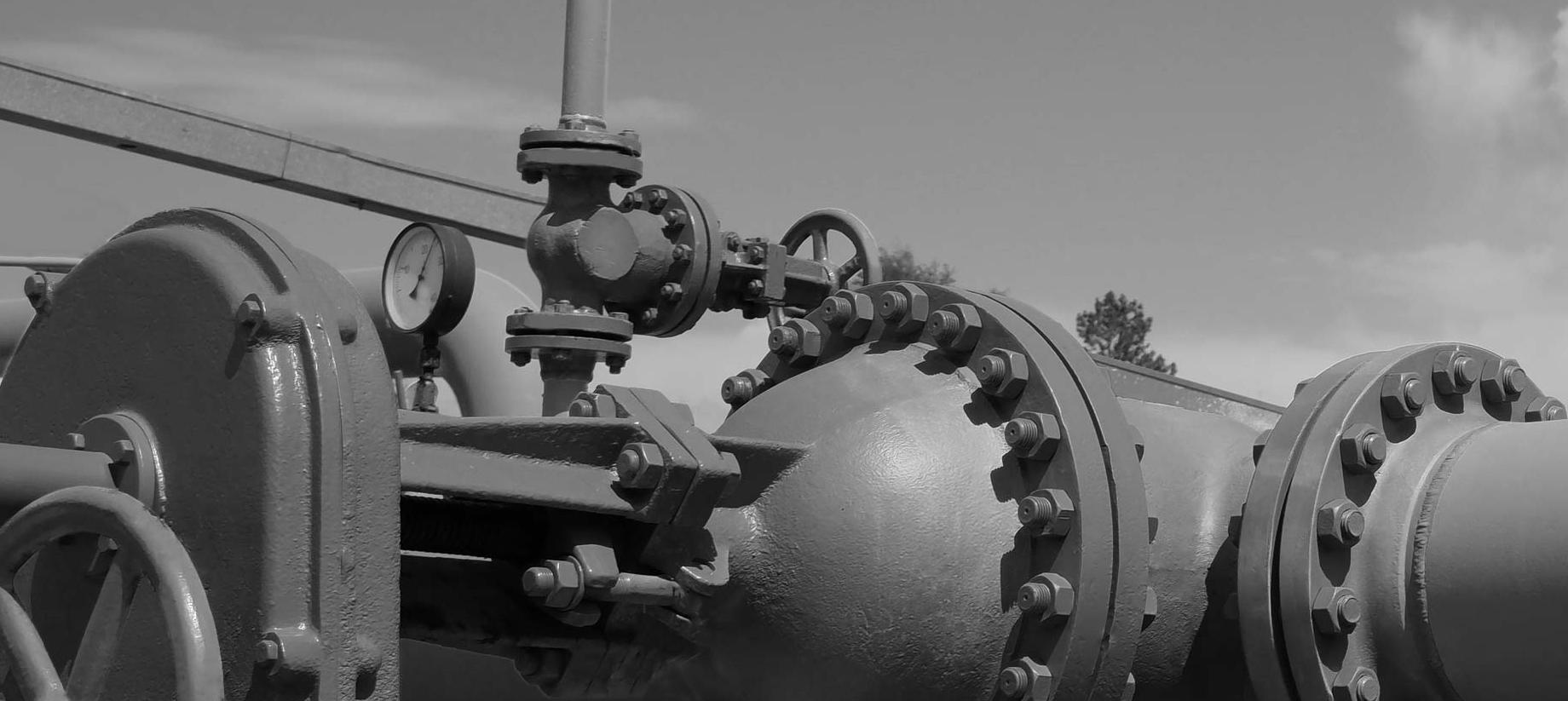
RRC weatherization inspections, ample underground gas storage and daily calls with operators all combined to ensure the natural gas supply remained strong during periods of plunges in temperatures that happened twice in January.
Weatherization inspections began in December to help ensure critical natural gas facilities in the state’s electricity supply chain can continue to operate in weather emergencies. The RRC’s Critical Infrastructure Division has conducted more than 1,800 inspections to date, including all of what are known as Tier One facilities which are major components of gas supply – oil and gas leases that produce more than 5 million cubic feet of gas per day, gas processing plants, underground gas storage facilities, and natural gas pipelines that directly connect to electricity generation plants.
Natural gas that is stored underground is also an important resource that can be withdrawn and utilized during weather emergencies. There was 522.4 billion cubic feet of working natural gas in underground storage in Texas as of the end of November 2024, which was the highest monthly total in the 25 years the RRC has tracked storage volumes.
“As we have done in past cycles, we will continue to stay on top of bad winter weather with inspections and calls with oil and gas operators,” said Danny Sorrells, RRC Deputy Executive Director. “We take every step we can to make sure gas flows to power plants and for home heating, and we want to reassure Texans that the agency takes an all-hands-on deck approach to protect residents in weather emergencies.”


The RRC’s winter weatherization inspections of critical natural gas facilities continue through the end of March.
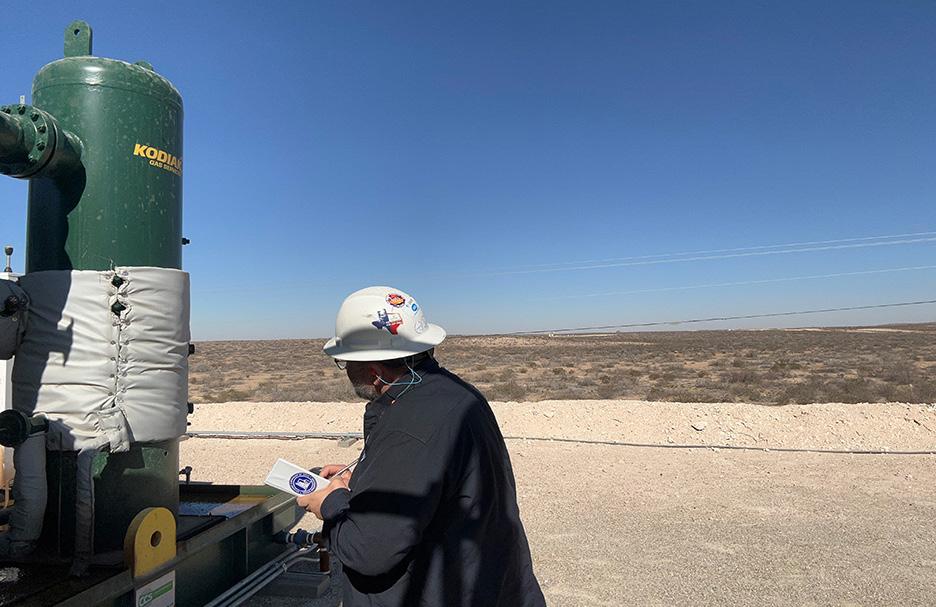
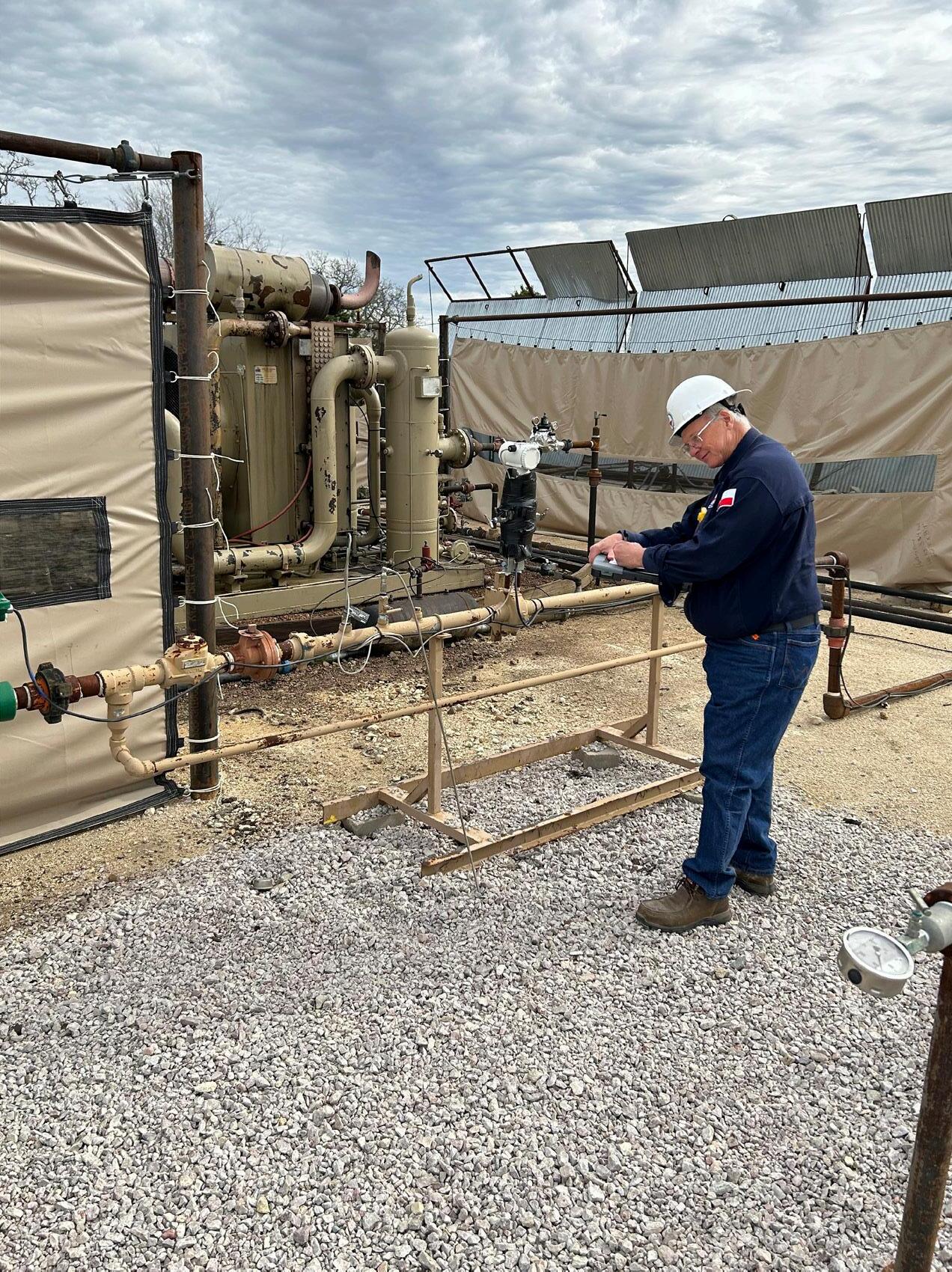
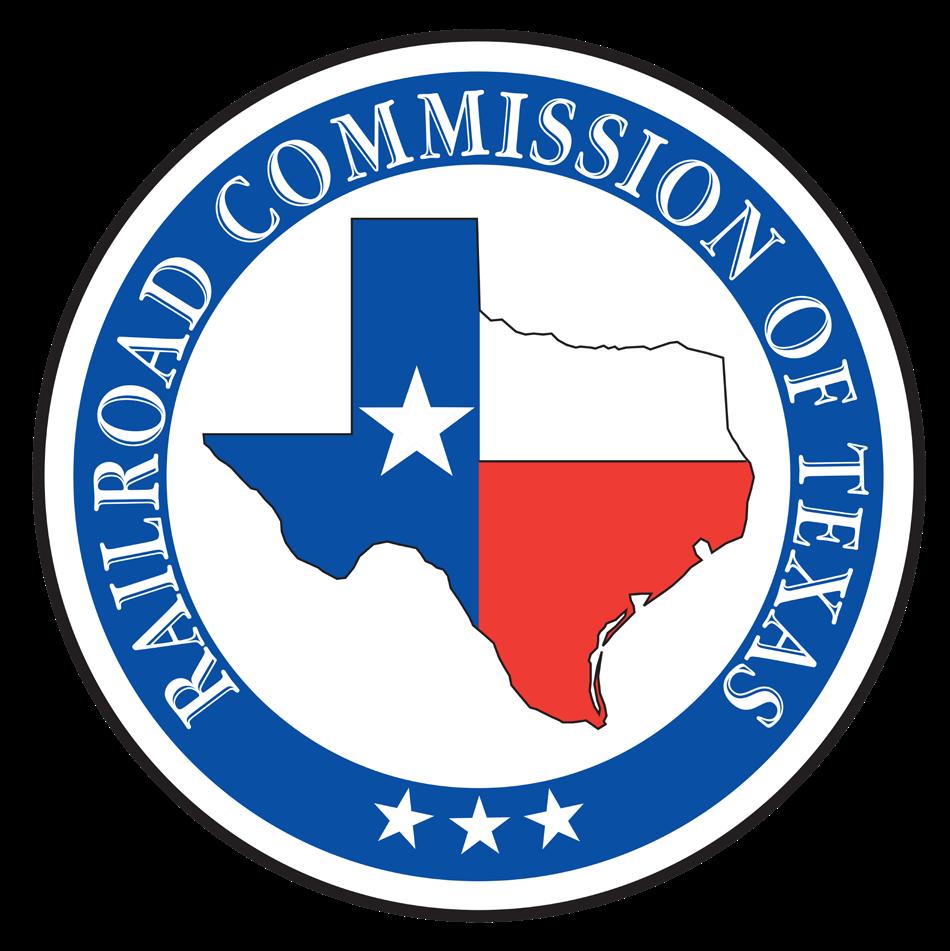

What a busy 2025 it has been so far! The Texas Legislature is back in session, and I have been hard at work in and around the Capitol, meeting with key policymakers and working with various industry stakeholders to advance and promote the Railroad Commission’s legislative agenda this biennium.
Specifically, I’m advocating for additional funding to plug more emergency wells and expensive high-priority wells to address the concerns surrounding the state’s orphan well population. Additionally, we are seeking funding for a new system for operators to report produced water data and to replace the current H-10 system, as well as a new system for operators to provide more information about pits used to store or manage oil field fluids and oil and gas waste.
Furthermore, I have asked for the Legislature’s support to finish out the agency’s IT upgrades, including modernizing our Public Geographic Information System Map Viewer to provide better reporting lines, digitization of our existing microfilm records in Austin for inclusion with existing digital resources available from the commission website, and an online filing system including modules for compliance filings and Alternative Fuels Online System needs enhancements to better streamline the permitting process for operators.
I look forward to continuing to advocate on behalf of the Railroad Commission in the months ahead to ensure we continue providing essential health, safety, and environmental oversight of the state’s energy sector.

This month Commissioner Christian released a new episode of his podcast “Wayne’s World: Energizing Texas” with Dan Naatz, COO of the Independent Petroleum Association of America (IPAA).
Additionally, the Commissioner sent a letter to the Texas Commission on Environmental Quality (TCEQ) encouraging their commissioners to halt implementation of President Joe Biden’s new methane rule for oil and gas operations. You can read more here.
Commissioner Christian also authored an opinion editorial in Real Clear Energy about President Donald Trump’s new executive orders and upcoming energy agenda. You can read more here.
Lastly, the Commissioner spent time at the Texas Capital visiting with legislators about the importance of Texas oil and gas and the hard work the Railroad Commission puts in to ensure the industry is safe yet robust.
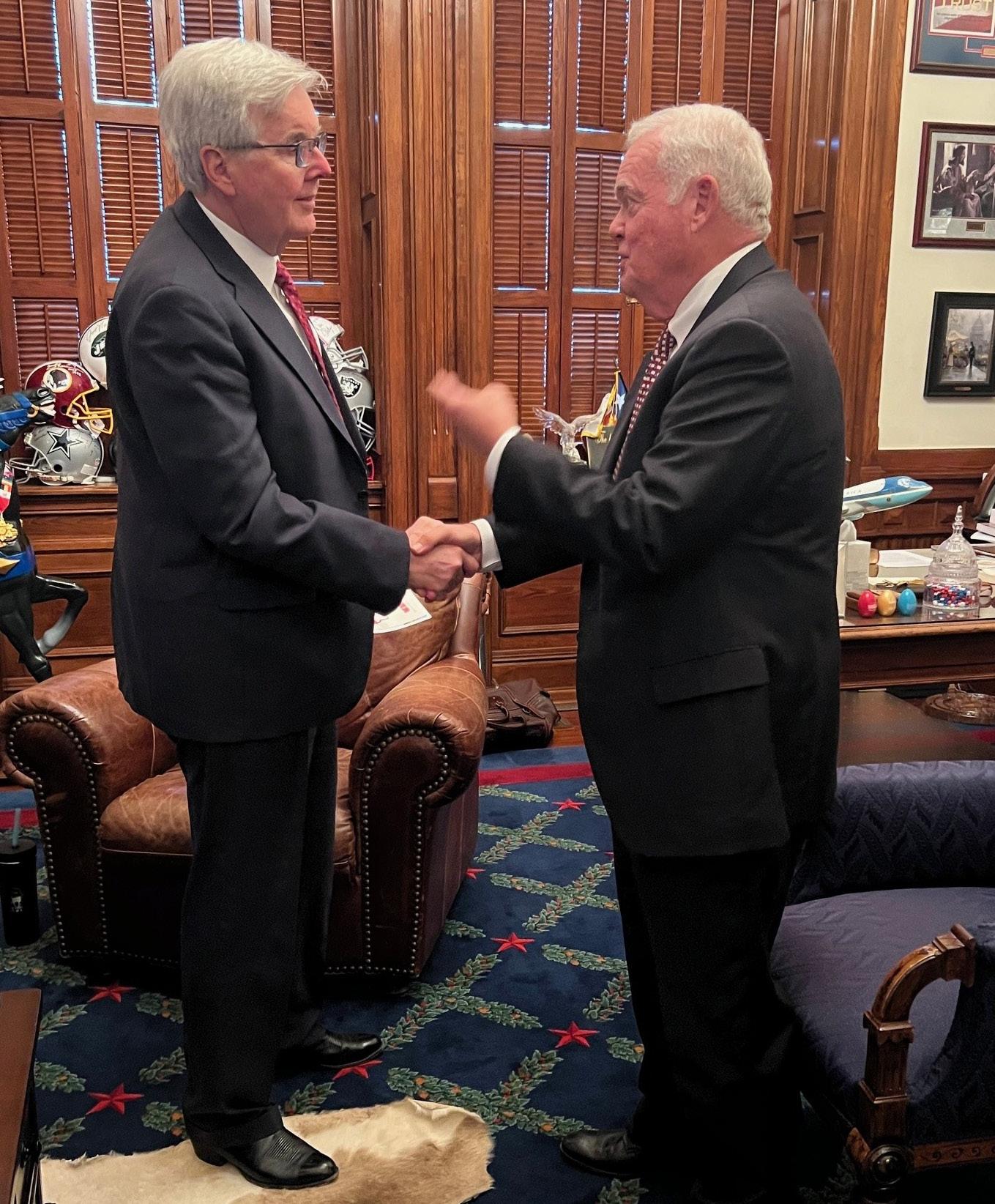
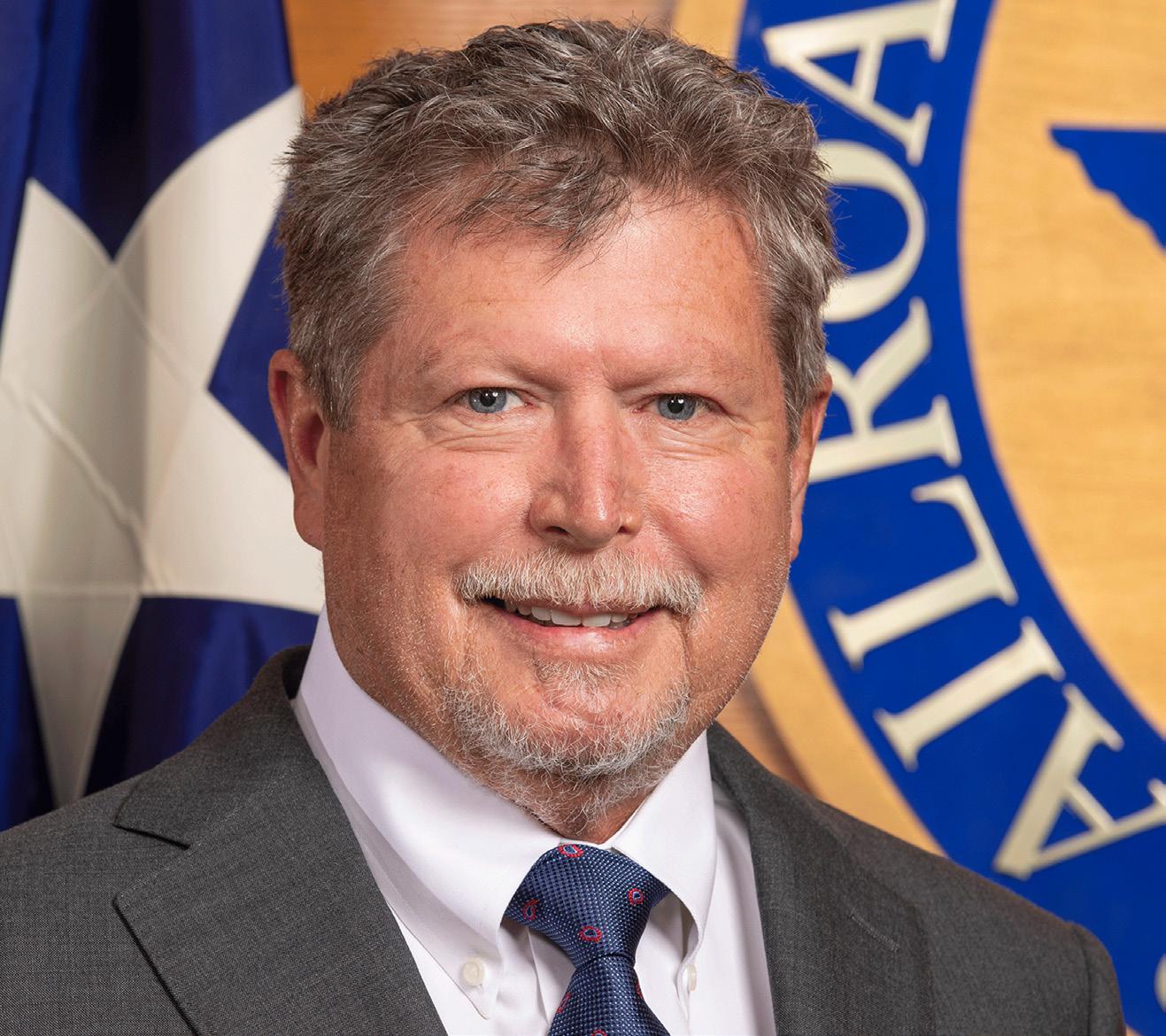
In January, Commissioner Wright traveled to Washington D.C. to attend the Texas State Society’s Business Conference. Commissioner Wright joined the Energy Innovation and Security panel where he discussed how technological innovation in areas such as produced water treatment will allow our energy sector to thrive while providing new water supply sources for Texas.


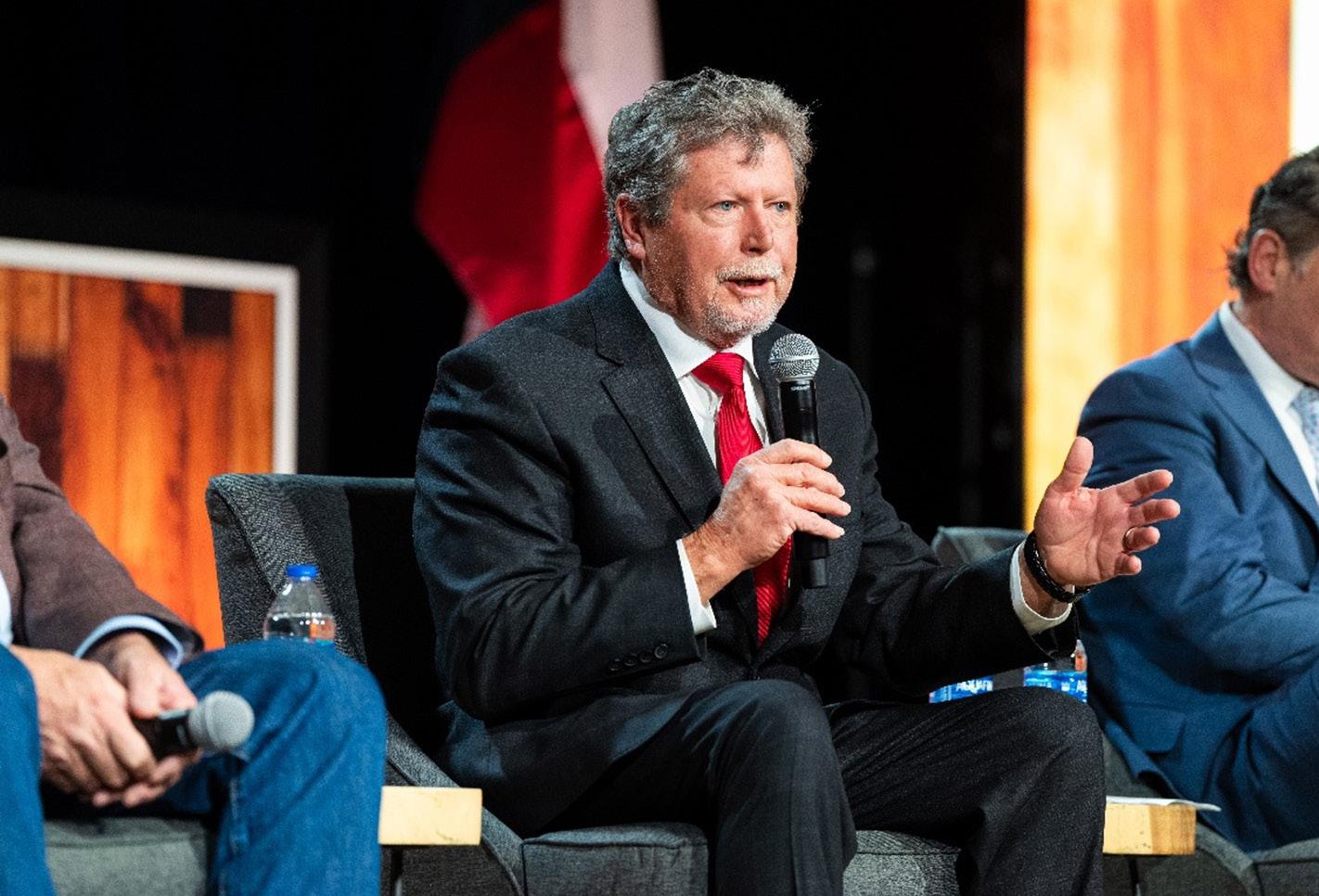
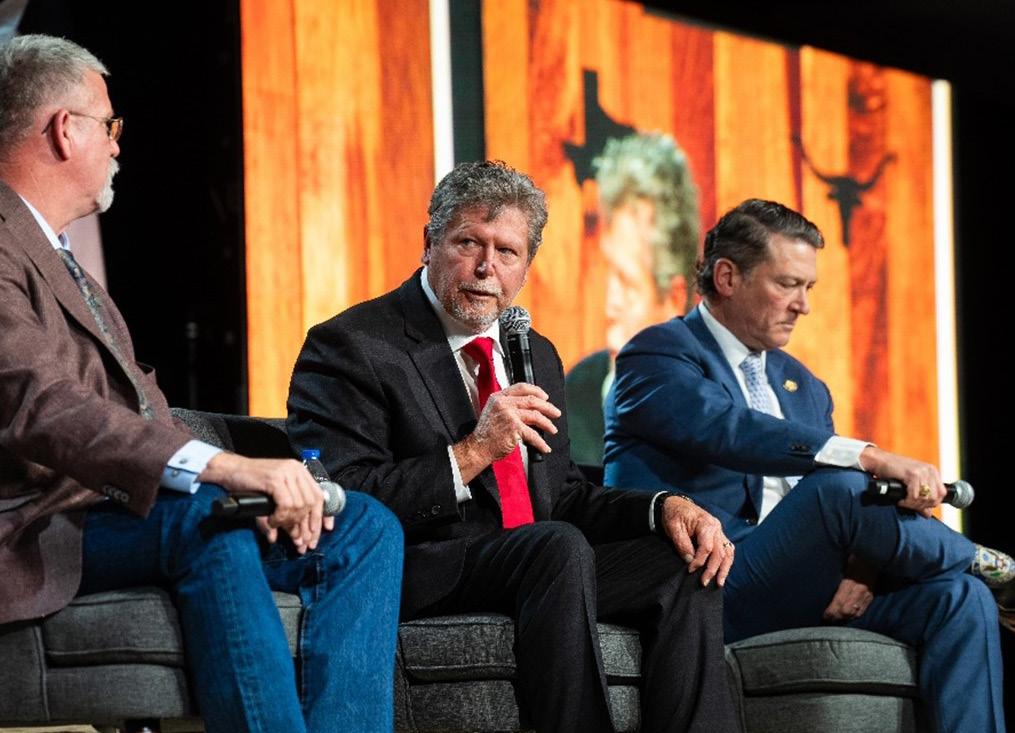

View monthly production totals of crude oil, condensate and total oil; and of gas well gas, casinghead gas, and total natural gas.
The Commission has primary oversight and enforcement of the state’s oil and gas industry and intrastate pipeline safety. View RRC’s Latest Enforcement Actions here.
The Public GIS Viewer allows users to view oil, gas and pipeline data in a map view.